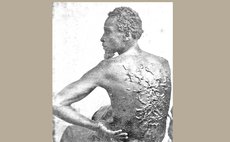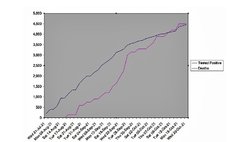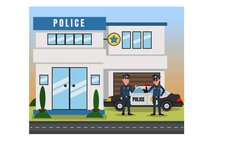The Normalisation of Abuse and the Dehumanisation of Dominican Society
In Dominica abuse has become normal. Physical and sexual violence against women and children, and abuse of the elderly and the social and physical environments have not only become commonplace but have taken on the veneer of normality. This normalisation of abuse is the symptom of the dehumanisation of Dominican society.
Abuse of all kind is rampant in Dominican society. The abuse of women, children, the elderly, the social and physical environments by noise terrorists, litter bugs and other forms of violation has become a national epidemic. A cursory survey of the human and natural landscapes and the various reports from the Child Abuse Prevention Unit, the Dominica National Council of Women, and other organisations, such as law enforcement and UNICEF reveals the magnitude of the problem.
And yet despite this widespread violation of Dominican citizens and the laws to protect them, the silence is deafening. Dominican society as a whole is guilty of sitting on the fence and allowing such a shameful situation to exist. Ordinary citizens, the state and its institutions, including local government; organisations such as women's groups and child protection organisations; the various church denominations and their affiliated groups-the Dominica Christian Council and the Dominica Association of Evangelical Churches- display a degree of apathy and cold indifference that is truly lamentable and reprehensible.
A remarkable fact is the complete lack of awareness of abuse displayed by the abused, a situation that allows them to be willing participants in their abuse. Many more are aware of their own abuse and the abuse of others. But they utter not a word in protest or moral outrage. They shrug their shoulders, bury their head in the sand and pretend that the abuse does not exist or will disappear on its own volition. Those who are not personally affected by abuse simply do not care about those who are. They happily go about their business while their neighbours experience the most horrendous forms of abuse. But worse are the exploiters and beneficiaries of abuse, who silently and conspiratorially feed on the victims of abuse and their families.
Complaints and expressions of moral outrage, when they are uttered, are often insincere and have a distinct bouquet of moral hypocrisy about them. The various church denominations, for example, are silent about the widespread abuse taking place across the island. But the evangelical community recently protested against the Jamaican singer, Alkaline's presence in Dominica. They chose to protest about the moral decay Alkaline and his music will inflict on Dominican society, whilst extreme abuse of all kind is taking place on their doorstep without a word of protest or moral outrage.
Society is dehumanised when abuse has become normal. The abused, the abuser and the witnesses of abuse lose their humanity and the society in which they live becomes dysfunctional, uncaring and brutish.
There are many contributory factors to the normalisation of abuse and the dehumanisation of Dominican society, amongst them are fear of intimidation and victimisation, a deep sense of powerlessness and fatalism. But the problem may have deeper social and psychological roots, which are to be found in the traumas of slavery. Dominicans are in a modern, global community but with a slave mind-set. They are still re-enacting the struggles of their slave ancestors. The dehumanisation of the Black male and female and their off-springs during slavery produced a damaged psyche and what has been described as the Post Traumatic Slave Syndrome: the catalyst for the normalisation of the abuse described above. Bob Marley's declaration to Blacks to free themselves from mental slavery is a recognition of this fact.
The eradication of the extensive and deeply rooted abuse in our society and emancipation from the mental slavery described by Bob Marley, the kind of belief system that normalises abuse, will take a radical approach, which I have described in a previous article as a revolution of the mind and spirit, a new psychology, a new or different way of being in, and responding to the world: nothing more and nothing less than self-transcendence and connection to the higher self. Colton Paul The Dominica Noise Abatement Association




